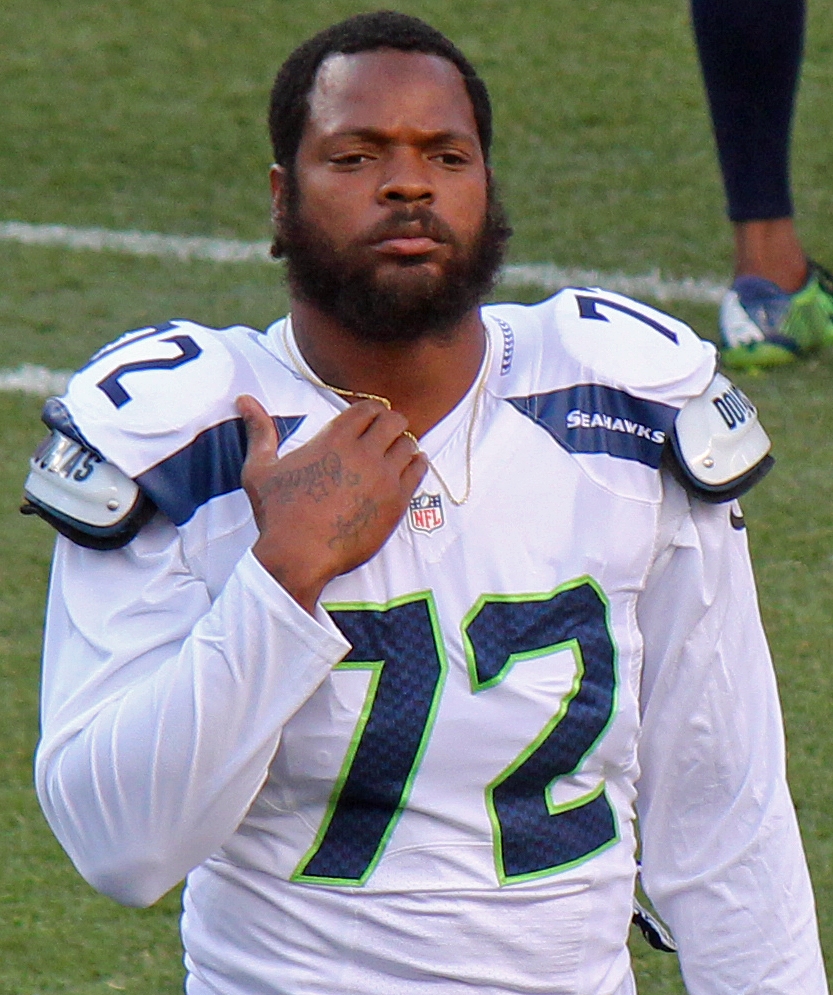
CARSON, California — Seattle Seahawks defensive end Michael Bennett plans to sit during the national anthem this season to protest social injustice — and expects a backlash over an issue that is “bigger than a sport.”
He sat on the visiting bench during “The Star-Spangled Banner” before a preseason opener against the Los Angeles Chargers, a decision he made before weekend protests by white supremacists at the University of Virginia.
The violence in Charlottesville, Virginia, including the death of a young woman struck by a car deliberately driven into a group of counter-protesters Saturday, solidified Bennett’s decision.
“With everything that’s been going on the last couple of months and especially after the last couple of days, seeing everything in Virginia, seeing what’s going on out there earlier today in Seattle, I just wanted to be able to use my platform to be able to continue to speak over injustice,” Bennett said.
“First of all, I want people to understand I love the military. My father was in the military. I love hot dogs like any other American. I love football like any other American, but I don’t love segregation,” he added. “I don’t love riots. I don’t love oppression. I don’t love gender slander. I just want to see people have the equality that they deserve, and I want to be able to use this platform to continuously push the message of that, you know, and keep journeying out and keep finding out how unselfish can we be as a society.”
Bennett was at least the third prominent NFL player to protest during the anthem in the first full week of preseason games. Oakland Raiders running back Marshawn Lynch, a former teammate of Bennett’s in Seattle, also sat. Los Angeles Rams defensive end Robert Quinn raised his right fist, continuing his approach from last season following then-San Francisco 49ers quarterback Colin Kaepernick’s decision to kneel during the anthem.
Kaepernick is a free agent, and the fallout from his protest has not abated, even as he remains unsigned.
Bennett is willing to deal with similar consequences.
“Of course, I’m going to face backlash,” he said. “This is bigger than me. This is bigger than football. This is bigger than anything that we have. This is about people. This is about bringing opportunities to people, giving people equality. This is bigger than a sport.”
Bennett said he had spoken with several other NFL players about possible protests, but had not talked with Lynch yet. While he acknowledged the possibility of more widespread and organized protests, Bennett wanted to express himself.
“I think everybody has a time where they feel like they need to be who they are and stand up for what they believe in,” Bennett said.
Seahawks coach Pete Carroll did not have a response to Bennett’s actions, saying he became aware of it only after the game.
Bennett said the aim of his protest is to make people uncomfortable. In the process, he hopes to spur greater communication, understanding and involvement across racial, gender and socio-economic lines.
“Everyone is in their comfort zone right now,” Bennett said. “Get out there and become uncomfortable. Go out there and see what it’s like out there in society right now.”










